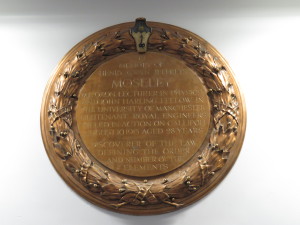On Monday April 23rd, he led his men “over the top”. Ten minutes later at 10pm, he fell with a bullet through his lung and shrapnel wounds in his head and foot. His servant Scholes remained with him. He tried to get help and failed. So he stayed on with his officer until 1am. The Germans were 30 yards only away. There he left Ben in obedience to Ben’s orders. The Germans swept forward, and when they retired Scholes went back to the shell hole where he had left Ben but found he had gone. All through the hours, Scholes writes, Ben was quite conscious though at the end very weak.
Scholes story of splendid devotion to his officer to my mind establishes the fact that Ben fell into German hands alive. His body has not been found. I have consulted our doctor as to his wound. His opinion is that as Ben was alive hours after the receiving the wound in the lung, shows that the lung had not penetrated one of the most vital spots. He says the case is not absolutely hopeless. Much would depend on the treatment he received. The facts are indeed black. Still, I have not yet given up hope yet. I early on placed the case in the hands of the War Office, the Central Prisoners of War Committee, the YMCA. God grant he may be found alive.
For nearly twelve years our home has been his home. He is more to us than our nephew. We lost Dick last year. Now Ben. But we are proud of our lads. I have received a beautiful letter from Ben’s Lieutenant Colonel. Twice, it appears, Ben had been mentioned in dispatches and he had been recommended for the military cross. He was as fine an officer as ever had men in a noble cause. He was always clever. His life in the army deepened and matured a strong Christian character. We can ill spare men like him in the Church.
You very kindly ask for his father’s address. The Right Reverend A Westfield, Fairfield, Spur Free PO, Jamaica. I am sure Mrs Westfield would value a letter from you.
Ben had a high regard for you, and I am sure a kindly letter, such as you have sent to me, could be a help to his sorely stricken parents. Ben was a modern man. But his faith was very deep and real. Three weeks before he met his fate, his fiancé tells us he knelt down in prayer. That was the spirit which the lad went into battle. His poor parents do not understand. They will understand some day. If I hear anything more about Ben I will write again or if home, try to see you.
With kind regards, many thanks
Yours very sincerely
SL Connor
